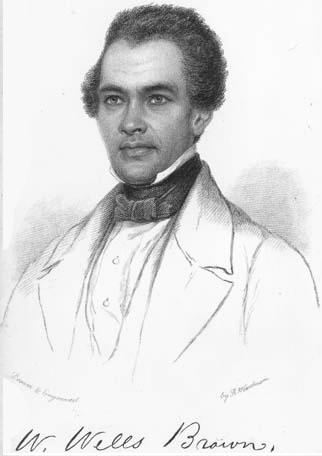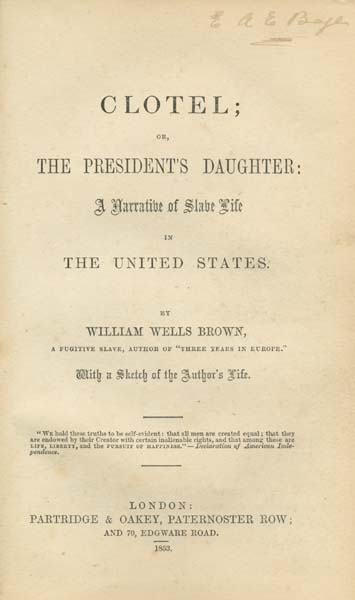
Abolitionists
Prolific author, orator and civil rights activist, William Wells Brown was a famous abolitionist and is known for being one of the first (if not the first) African Americans to publish a novel.
No person of my complexion can visit this country without being struck with the marked difference between the English and the Americans. The prejudice which I have experience on all and every occasion in the US and to some extent on board the Cambria, vanished as soon as I set foot on the soil of Britain…
Brown was born into enslavement in Kentucky in 1814. He resolved to escape after he witnessed the brutal treatment of fellow enslaved people: his first attempt failed, and he was caught by his enslaver and tortured. In 1834, he successfully escaped to Ohio, and was cared for by a Quaker named Wells Brown. William decided to name himself after him.
 William Wells Brown (Wikipedia)
William Wells Brown (Wikipedia)
For the next few years, he helped fugitive slaves escape to Canada. Brown became part of the national network of the ‘Underground Railroad’ offering help and assistance to fugitives along the way. He was a brilliant speaker, and he was invited to lecture at the American Anti-Slavery Society with William Lloyd Garrison. Brown travelled to Britain and remained there for several years, travelling thousands of miles and giving hundreds of lectures. It was here British friends purchased his freedom, the same family to purchase the freedom of Frederick Douglass’.
Throughout his life, Brown wrote several books including an autobiography, a narrative about his travels around Britain and Europe, and works honouring the courage, resilience and talents of black men and women. His novel, Clotel (1853) was published in Britain, and is regarded as the first fiction book to be published by an African American.

Brown urged African Americans to enlist for the Union during the Civil War, and he continued to campaign for black rights after the war. He died in 1884 in Massachusetts.
Had Exeter Hall been capable of holding fifty thousand instead of five thousand, it would no doubt have been filled to its utmost capacity. For more than a week before the meeting came off, the tickets were all disposed of, and it was understood that hundreds were applying every day.